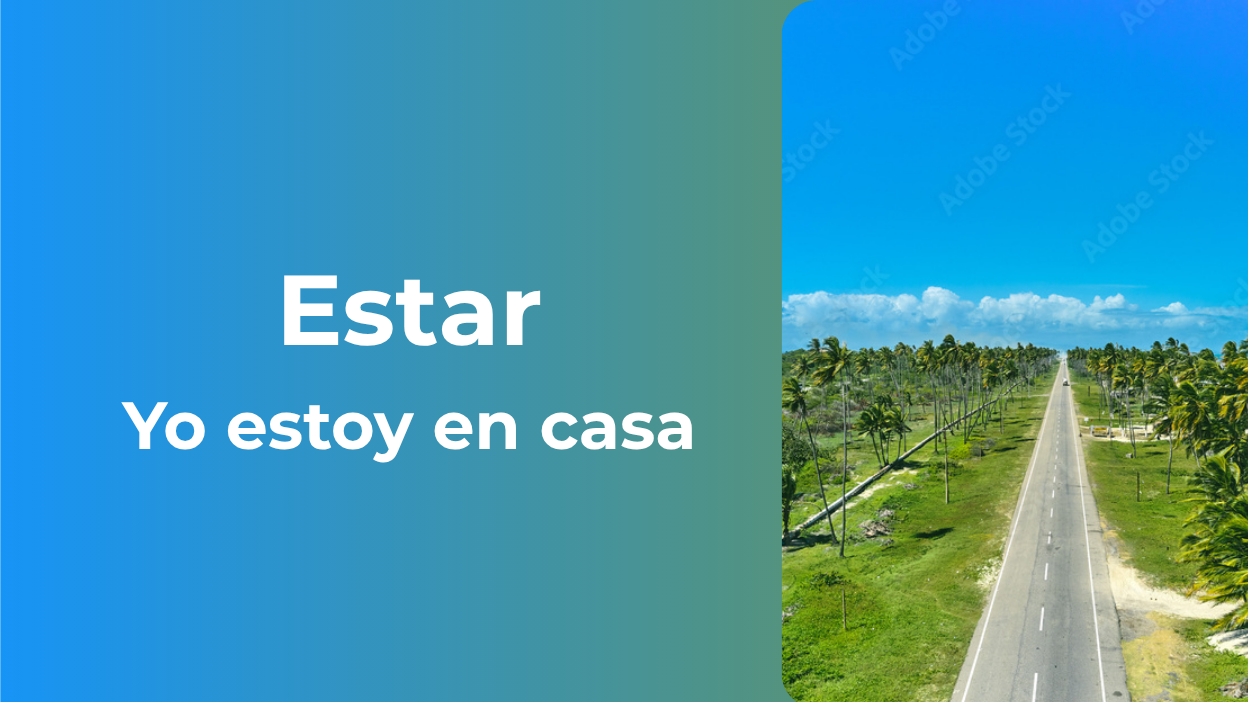The verb estar is essential in Spanish to express location, emotions, and temporary states. Let’s explore how to use it correctly and practice with examples.
🟨 Verb “Estar” — How Do We Use It?
Let’s break down how to use the verb estar in Spanish.
Expressing Location:
Yo estoy en casa → I am at home
Estar can be used to express location.
In the example above, “Yo estoy en casa” means “I am at home.”
🟨 Conjugation of “Estar” in the Present Tense
Below is the conjugation of estar in the present tense.
Notice how the verb changes depending on the subject pronoun.
| Subject Pronoun | Conjugation | Example in Spanish | English Translation |
|---|---|---|---|
| Yo | estoy | Yo estoy en casa | I am at home |
| Tú | estás | Tú estás en la escuela | You are at school |
| Él / Ella / Usted | está | Ella está en la tienda | She is at the store |
| Nosotros / Nosotras | estamos | Nosotros estamos en clase | We are in class |
| Ellos / Ellas | están | Ellos están en la oficina | They are at the office |
| Ustedes | están | Ustedes están en el parque | You all are in the park |
❌ Negations
To negate the verb, simply add “no” before the verb:
- Ella no está en casa → She is not at home
❓ Yes/No Questions
You can form yes/no questions by changing your intonation or using question marks.
- ¿Tú estás en casa? → Are at home?
❓ Questions
We can also use words like “dónde” to ask questions.
- ¿Dónde estás? → Where are you?
🟨 Common Uses of “Estar”
There are also other uses of the verb “estar”
We use estar for the following situations:
- Location
- Emotions
- Temporary States
- Ongoing Actions (estar + gerundio)
Let’s see examples of each one
📍 Location
- Yo estoy en el supermercado → I am at the supermarket
- Ellos están en clase → They are in class
- ¿Tú estás en casa? → Are you at home?
💬 Emotions
- Nosotros estamos felices → We are happy
- Ella no está triste → She is not sad
- ¿Ustedes están preocupados? → Are you all worried?
😷 Temporary States
- Tú estás enfermo → You are sick
- Él está cansado → He is tired
- ¿Ellas están listas? → Are they ready?
📝More examples.
- Yo estoy en mi cuarto. → I am in my room.
- Tú estás muy cansado. → You are very tired.
- Ella no está contenta. → She is not happy.
- ¿Ustedes están en la escuela? → Are you all at school?
- Nosotros estamos nerviosos. → We are nervous.
✅ Wrap-up
Now you know that estar is used to express:
- Location
- Emotions
- Temporary physical/mental states






